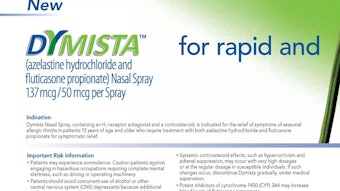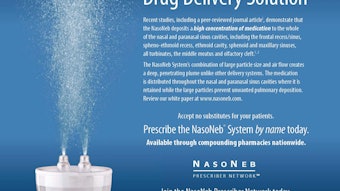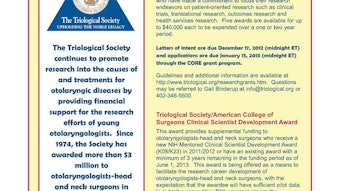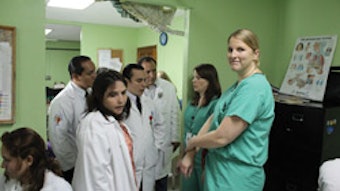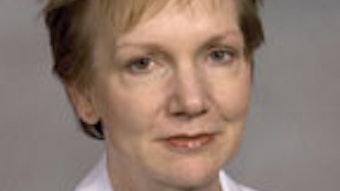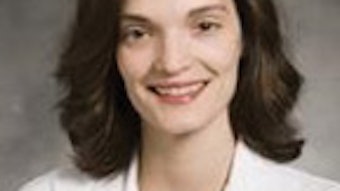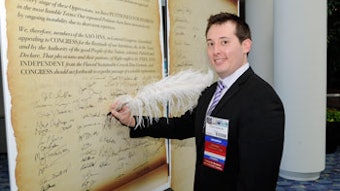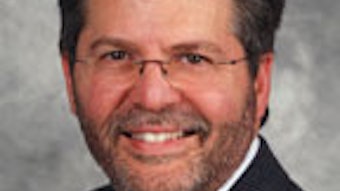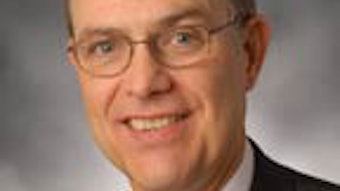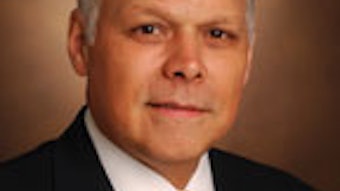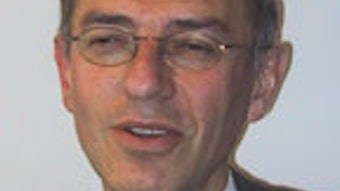Highlights from the 2012 Leadership Program in Health Policy and Management
Michael J. Brenner, MD 2012 ACS/AAO-HNS Health Policy Scholar There has never been a greater need for healthcare policy leadership in otolaryngology–head and neck surgery. Greater engagement of surgeons is a critical step in cultivating future leaders. The American Academy of Otolaryngology—Head and Neck Surgery and the American College of Surgeons have therefore partnered to offer a scholarship in health policy and leadership. This unique program represents one of the many ways the Academy grows future leaders in our specialty. This year’s Leadership Program in Health Policy occurred May 20-26 at Brandeis University’s Heller School. Nearly 40 surgeons, representing the full range of surgical specialties, participated in the weeklong course critically evaluating health policy. The program afforded a broad perspective on the international healthcare landscape and addressed the unique challenges and opportunities facing us as healthcare providers in the United States. Participants left the session empowered with this knowledge, impassioned and prepared to contribute to leadership in a wide variety of health policy areas nationally. The opening program provided a historical backdrop that outlined how we arrived at the current, precarious position in healthcare in the United States. Presenters addressed the challenges posed by rising costs and proliferating technology. Surgeons often feel disenfranchised by major political movements, many of which have led to changes in practice structure, reimbursement, and diminished autonomy. The health policy leadership program empowered participants to drive positive change on behalf of patients and fellow colleagues. Payment, Care Delivery Models Several sessions addressed various models in payment and care delivery, such as episode-based bundling—an approach to clustering healthcare services that appeared repeatedly this year in the New England Journal of Medicine. Another session addressed Accountable Care Organizations, detailing the rationale for these organizations and their unintended consequences. Data Envelopment Analysis, a quantitative model for assessing value and quality, also was evaluated. It became readily apparent that surgeons require a working knowledge of these areas to have an influential voice in national dialogues on health policy. Such policy can profoundly influence how we practice medicine. The leadership program used interactive, data-intensive breakout sessions to teach participants how to execute strategic planning. A detailed vignette on race car engine failure provided a compelling model for examining larger questions of risk tolerance and safety. Common cognitive errors were considered and strategic thinking was emphasized. An exercise on effecting change showed pathways to cultivating relationships and capitalizing on resources. The program struck a balance between high-level thinking and data-driven critical analysis. The unrivaled complexity of the U.S. healthcare system underscores the need for such strategic thinking and surgical leadership in healthcare policy. Even if we are stalwart advocates for our individual patients, our efforts will fall short if we allow policy makers to promulgate policies that fail to serve our patients’ best interests. Surgeons who understand patient care, national issues in healthcare, and the financial underpinnings of proposed policies are in an ideal position to promote positive change. Policy Makes—or Breaks—Practice One might be tempted to ask whether we can afford the precious time necessary to engage in these leadership and health policy activities. The answer, borne out time and again by history, is that we cannot afford not to serve in this role. Engagement in health policy is an opportunity to grow and to reinvent ourselves. In my own experience, involvement in healthcare policy and committee efforts has opened doors that I would never have anticipated. In the few short months since that conference, I have seen an influence in the hospitals where I work and traveled as far as Glasgow, Scotland, for an international collaborative. As with so many things in life, doors open unexpectedly. What one gets out of an effort is inextricably linked to what one puts into it. Participating in the health policy leadership program allowed me to build professional friendships that will undoubtedly last for many years to come. In the future, we will need to work together to develop a unified voice in health policy. We are fortunate to have tremendous leadership from within our Academy, and it is imperative that we each find a way to make a contribution. Otolaryngology-head and neck surgery has a pivotal role to play in national healthcare reform. This role has bearing on our ability to ensure safe, effective, and high quality care. Through engagement in health policy and providing leadership in our national organizations, we can shape national discourse, and thereby ensure a bright future for our specialty.
Michael J. Brenner, MD
2012 ACS/AAO-HNS Health Policy Scholar
There has never been a greater need for healthcare policy leadership in otolaryngology–head and neck surgery. Greater engagement of surgeons is a critical step in cultivating future leaders. The American Academy of Otolaryngology—Head and Neck Surgery and the American College of Surgeons have therefore partnered to offer a scholarship in health policy and leadership. This unique program represents one of the many ways the Academy grows future leaders in our specialty.
This year’s Leadership Program in Health Policy occurred May 20-26 at Brandeis University’s Heller School. Nearly 40 surgeons, representing the full range of surgical specialties, participated in the weeklong course critically evaluating health policy. The program afforded a broad perspective on the international healthcare landscape and addressed the unique challenges and opportunities facing us as healthcare providers in the United States. Participants left the session empowered with this knowledge, impassioned and prepared to contribute to leadership in a wide variety of health policy areas nationally.
The opening program provided a historical backdrop that outlined how we arrived at the current, precarious position in healthcare in the United States. Presenters addressed the challenges posed by rising costs and proliferating technology. Surgeons often feel disenfranchised by major political movements, many of which have led to changes in practice structure, reimbursement, and diminished autonomy. The health policy leadership program empowered participants to drive positive change on behalf of patients and fellow colleagues.
Payment, Care Delivery Models
Several sessions addressed various models in payment and care delivery, such as episode-based bundling—an approach to clustering healthcare services that appeared repeatedly this year in the New England Journal of Medicine. Another session addressed Accountable Care Organizations, detailing the rationale for these organizations and their unintended consequences. Data Envelopment Analysis, a quantitative model for assessing value and quality, also was evaluated. It became readily apparent that surgeons require a working knowledge of these areas to have an influential voice in national dialogues on health policy. Such policy can profoundly influence how we practice medicine.
The leadership program used interactive, data-intensive breakout sessions to teach participants how to execute strategic planning. A detailed vignette on race car engine failure provided a compelling model for examining larger questions of risk tolerance and safety. Common cognitive errors were considered and strategic thinking was emphasized. An exercise on effecting change showed pathways to cultivating relationships and capitalizing on resources. The program struck a balance between high-level thinking and data-driven critical analysis.
The unrivaled complexity of the U.S. healthcare system underscores the need for such strategic thinking and surgical leadership in healthcare policy. Even if we are stalwart advocates for our individual patients, our efforts will fall short if we allow policy makers to promulgate policies that fail to serve our patients’ best interests. Surgeons who understand patient care, national issues in healthcare, and the financial underpinnings of proposed policies are in an ideal position to promote positive change.
Policy Makes—or Breaks—Practice
One might be tempted to ask whether we can afford the precious time necessary to engage in these leadership and health policy activities. The answer, borne out time and again by history, is that we cannot afford not to serve in this role. Engagement in health policy is an opportunity to grow and to reinvent ourselves.
In my own experience, involvement in healthcare policy and committee efforts has opened doors that I would never have anticipated. In the few short months since that conference, I have seen an influence in the hospitals where I work and traveled as far as Glasgow, Scotland, for an international collaborative. As with so many things in life, doors open unexpectedly. What one gets out of an effort is inextricably linked to what one puts into it. Participating in the health policy leadership program allowed me to build professional friendships that will undoubtedly last for many years to come.
In the future, we will need to work together to develop a unified voice in health policy. We are fortunate to have tremendous leadership from within our Academy, and it is imperative that we each find a way to make a contribution. Otolaryngology-head and neck surgery has a pivotal role to play in national healthcare reform. This role has bearing on our ability to ensure safe, effective, and high quality care. Through engagement in health policy and providing leadership in our national organizations, we can shape national discourse, and thereby ensure a bright future for our specialty.
